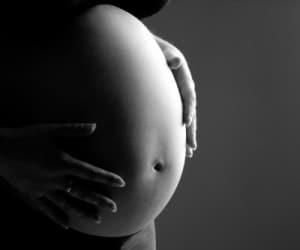
Researchers from the University of Michigan School of Medicine found that infants born from depressed mothers had decreased muscle tone, high levels of stress hormones, and had many neurological and behavior differences to infants born of nondepressed mothers.
“The two possibilities are that [the infants] are either more sensitive to stress and respond more vigorously to it, or that they are less able to shut down their stress response,” lead investigator Dr. Delia M. Vazquez, a professor of psychiatry and pediatrics at the University of Michigan School of Medicine, said in a school news release.
The study looked at 154 pregnant women who were diagnosed as depressed. The women were evaluated during their pregnancies for their depression. Umbilical blood was then taken from the infants after birth to test for stress hormone levels in the infants. After two weeks, the infants had neurobehavioral tests to check for their motor skills and responses to stimuli. The infants seemed to be affected in some way by the depression their mothers faced.
“It’s difficult to say to what extent these differences (in babies born to mothers with depression) are good or bad, or what impact they might have over a longer period of time,” lead author Dr. Sheila Marcus, clinical director of U-M’s Child and Adolescent Psychiatry Section, said in the news release
The researchers hope that this study will encourage women who are feeling depressed to seek help for it during pregnancy. It is estimated that one in five women experiences depression during pregnancy. – Summer, staff writer
Related Articles:
- Are Babies Who Are Born in The Summer Happier?
- Study: Parents of Young Children More At Risk For Depression
- Study: Stress During Pregnancy Can Affect Child’s Health
- Acupuncture May Help Pregnancy Depression






